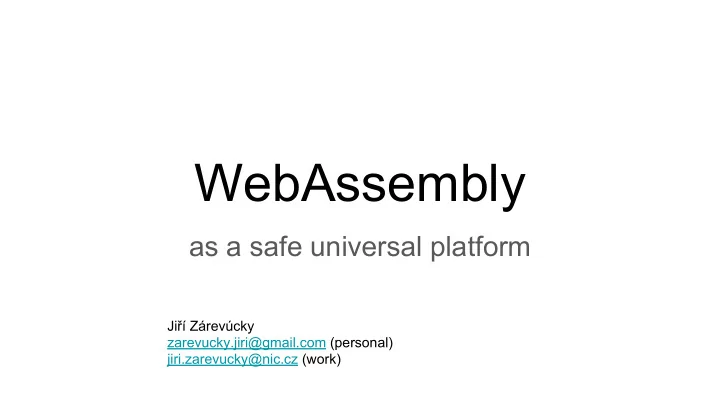

WebAssembly as a safe universal platform Jiří Zárevúcky zarevucky.jiri@gmail.com (personal) jiri.zarevucky@nic.cz (work)
Original motivation - HelenOS: many platforms, including IA64 (Itanium) - LLVM: no official support for IA64, former support buggy, unmaintained - Rust: LLVM backend only - - HelenOS with servers implemented in Rust ??? Answer? Build to WebAssembly, translate wasm to pure C.
WebAssembly - Binary distribution format. - Virtual ISA. - Fast, secure client-side code execution. - Made for web browsers, but much more versatile! - Stack-based VM, but… - Drawbacks usually associated with such VMs don’t apply. - Strict well-formedness. - Strict semantic requirements, deterministic (mostly). - Checked memory access. - Simple. - Function import from environment.
Rust - Safety and performance. - Difficult to learn, but high rewards. - LLVM backend, supports WebAssembly - C ABI interoperability… - Translates to imports in wasm!
WebAssembly to C - Stack slots = local variables, no stack manipulation. - Most instructions: calls to C shim i64.add → stack_5 = _i64_add(stack_1, stack_4); - Imported functions → extern C functions - (BUT can’t directly pass pointers. Safety!) - Very simple translator. (< 1000 loc) - Crude output, but GCC can optimize it. - Flexible!
Recommend
More recommend